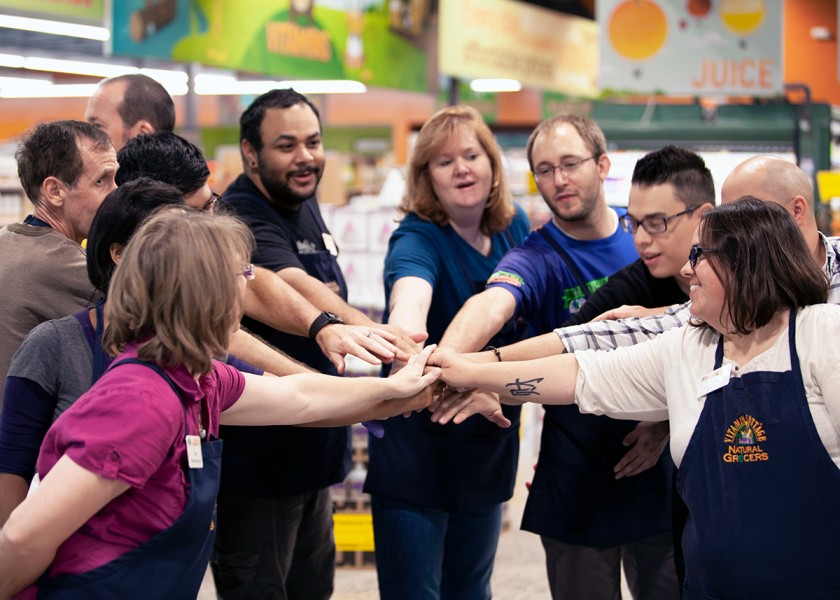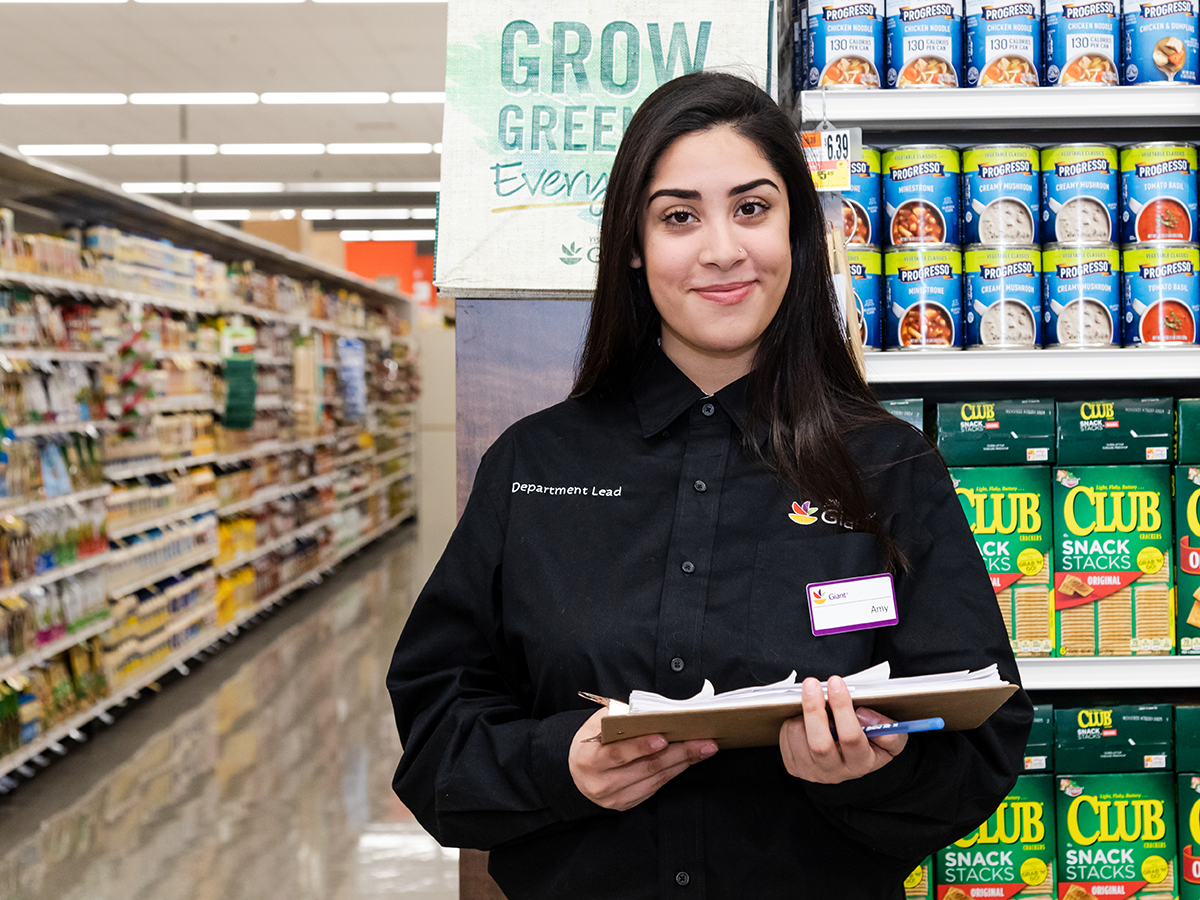How retailers are making strides toward diversity in leadership roles

In the wake of George Floyd’s killing in 2020 and the nationwide protests that followed, many grocery retailers announced new or enhanced diversity, equity and inclusion, or DEI, initiatives to create a more welcoming workplace for historically marginalized groups.
When FMI, The Food Industry Association, surveyed food industry executives in 2021 for its “Future of Work” study, diversity was featured prominently in participants’ plans. Asked about priorities for the senior leadership team, an overwhelming majority expressed a goal to make “significant progress” on DEI goals. Of those whose companies already had programs in place, 70% said they believed their efforts were successful in creating a better workplace for employees and improving talent attraction and retention.
DEI initiatives aim not only to increase diversity in entry-level positions, but also to provide concrete pathways for employees to advance into leadership roles.
Business as a diversity driver
Doug Bohr, chief education and programs officer at the International Fresh Produce Association, views business as a key driver for DEI efforts.
“Research shows that in addition to a rise in productivity, companies with greater team diversity are more likely to capture new markets, tap new revenue streams and perform better financially,” Bohr said. “Why? Because a more diverse team supported by an inclusive workplace culture shares and embraces a broader spectrum of perspectives, skills and experiences.”
It also leads to new ideas.
“As we strive to increase consumption of fresh produce and floral, we will need that innovation,” he said.
Bohr points to mentorship as one successful leadership development tool in the produce industry.
“It builds allyship, whereby colleagues advocate for one another,” he said. “It also helps emerging talent navigate career paths and pitfalls that could otherwise derail their growth.”
IFPA says it supports its members’ DEI goals with the Women’s Fresh Perspective Conference, which fosters gender inclusiveness, and initiatives such as the Emerging Leaders Program, which prepares high-potential employees at all levels of the industry to embrace increasing levels of responsibility.
Ramping up retailer efforts
The Kroger Co. launched its Framework for Action DEI plan in 2020. When the effort kicked off, Kroger engaged in recruitment collaborations with just three educational institutions serving diverse student populations. Today, it works with 56 institutions, including Historically Black Colleges and Universities, and institutions with large Hispanic, Asian American and Pacific Islander, and Native American student populations.
“As part of this commitment, we have also established a two-way mentorship and advocacy program between associates who represent diverse talent and senior leaders,” explained Reshamar Short, senior director of DEI with the Cincinnati-based retailer. “We have adopted a performance measure for every leader to actively mentor and develop at least one associate with a different background from their own.”
In 2022, Albertsons Cos. introduced its Recipe for Change framework, based on the four pillars of planet, people, product and community.
Monique Lanaux, group vice president and DEI chief for the Boise, Idaho-based company, said Albertsons focuses on building and nurturing a diverse team at the top level.
“Four of the 11 executives on the Albertsons Cos. senior leadership team are women, and four are people of color, including CEO Vivek Sankaran,” she said. “Among the 11 members of the company’s board of directors, four are women and three are people of color.”
In fiscal year 2022, Albertsons says it trained more 15,000 leaders through its Leading with Inclusion workshops, designed to heighten awareness around bias and provide tools to support a more inclusive work environment.
Through the McKinsey Connected Leaders Academy, the company offers programs dedicated to developing diverse leaders, including an executive leadership curriculum for senior leaders and a management accelerator program for early- and mid-career managers. Since its launch a few years ago, nearly 400 employees have taken part in the program.
In addition, the grocer says it launched two enterprisewide programs to enhance the capabilities of its leaders. This includes an immersive assistant store director training program and a foundational leadership skills curriculum.
Albertsons says it plans to continue advancing its Recipe for Change initiative in 2024, particularly in empowering associate resource groups as a tool for leadership development.

Signs of success
Natural Grocers launched its Store Manager Accelerated Readiness Training, or SMART, program in 2018, which it says enables interested and motivated department managers to move up to store manager positions in just nine months. Candidates need not have college degrees or previous grocery experience.
“This program was intentionally conceived as an accelerated opportunity for upward mobility,” said Susan Lyle, director of recruiting for Natural Grocers. “It removes obstacles that often prevent amazingly talented people from pursuing and holding leadership roles.”
According to the Lakewood, Colo.-based grocer’s latest environmental, social and governance report, women represented 45% of store managers and 58% of assistant store managers as of Sept. 30, 2023. In addition, 57% of director-level managers and above were women.
“Our internal promotion rates demonstrate our continuing investment in our Crew (the internal term for Natural Grocers employees),” Lyle said, adding that many of the current company leaders started out in entry-level customer care positions.
Giant Food also has a strong focus on education and training. Jamie Joshua, DEI manager for the Landover, Md.-based company, says the idea is to nurture employees and encourage them to think beyond the positions they are currently in.
“Not everyone comes into a grocery store with the skill set of how to lead a team,” she said. “We want to make sure that people feel confident and know that we see something in them that would allow them to advance within the organization.”
With development in mind, Giant offers scholarships and grants to help employees further their education and provides an assistant manager training program. Through its “People on the Move” email newsletters, the company highlights employees that have moved up the ranks.
“I think it's important to have that diversity so that people can see themselves represented,” Joshua said. “We're promoting people because they have the talent and the experience that we're looking for in order to fill a gap that is missing in that space — not just ‘for the numbers.’”
Having diverse representation on all levels of the company — including the human resources team — builds trust and connection with employees, she added, and it helps the grocer better serve the diverse communities in which it operates.
This is part of the company’s effort to create an inclusive culture that makes employees want to stay. With that goal in mind, Giant created six volunteer-led business resource groups, including such groups for people of color, women, military veterans and those in the LGBTQ+ community. Groups host activities such as the “Be Your Authentic Self” workshop and a National Hispanic Heritage Month celebration.
Last year, Giant rolled out a new employee value proposition called Grow Care Belong, which pledges to foster a “culture of care” within the company.
“We made a lot of effort and strides in doing trainings with our management population,” Joshua said, noting one workshop that addressed unconscious bias. “This year we're going to focus on the next level, which is our department managers and our associates as a whole — just continuing what's already working.”
Joshua said she is glad to see the food industry recognizing DEI’s importance and building on its efforts.
“It's tough that in 2024 we're still having these conversations about the need for diversity,” she said. “The retail space is still growing and it's catching up very quickly, as it needs to.”
One of the main challenges in getting up to speed, Joshua said, is finding time to do the work. “If I’m trying to take someone off the floor to do an hour of training, who am I replacing them with?” she said. “Having 25 hours in a day would be great.” pmg







